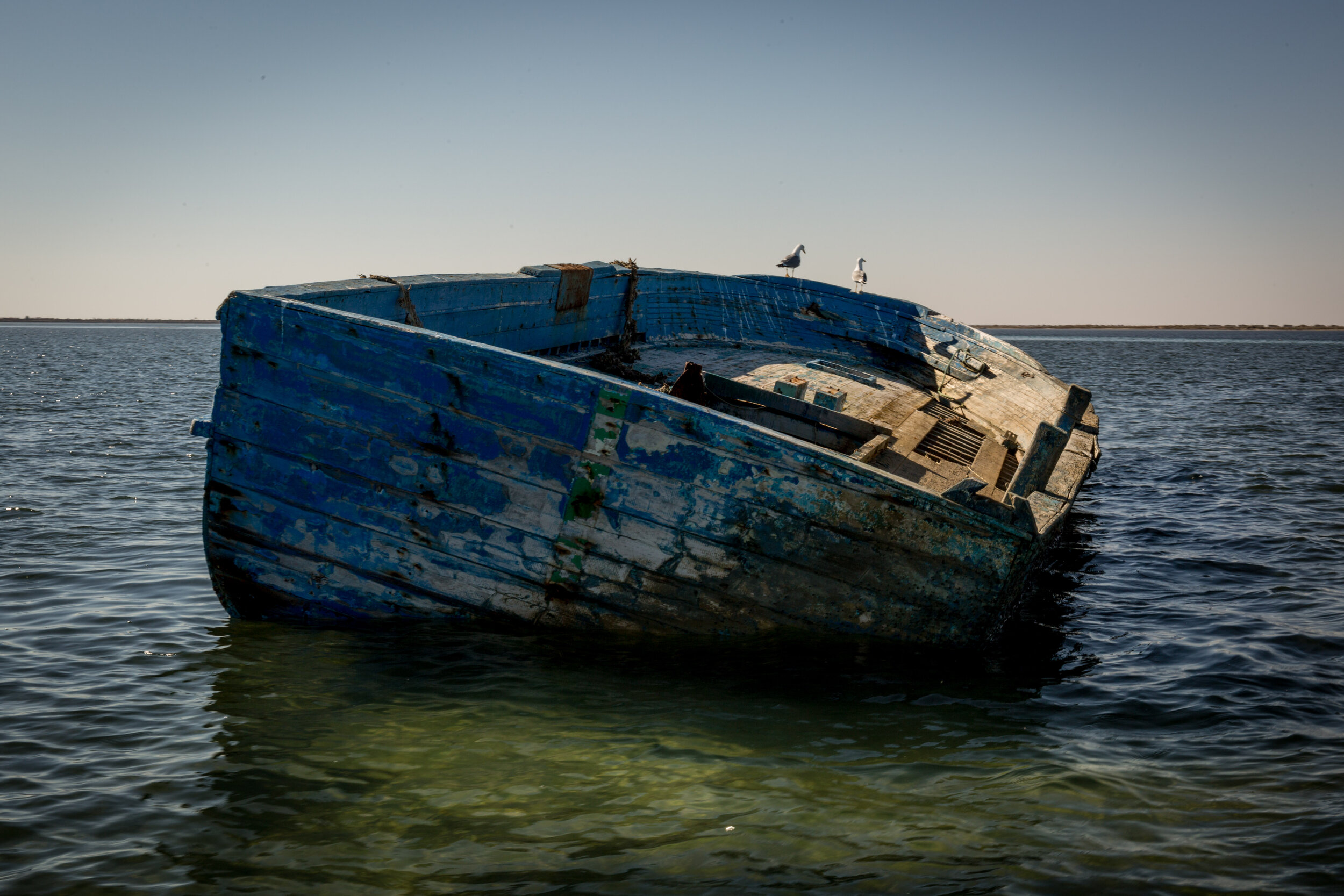Wednesday, June 17, 2020
1:00 p.m. EST
Online
We’re excited to present a limited online screening of the award-winning documentary Strange Fish: The Anonymous Heroes of Zarzis, followed by a live discussion with director Giulia Bertoluzzi moderated by migration studies scholar Eleanor Paynter. After celebrated screenings across North Africa and Europe, this event brings Strange Fish to audiences in North America and around the globe. The one-hour film tells the story of a group of fishermen in Zarzis, Tunisia, who have been rescuing migrants and burying the dead for nearly two decades.
View our online discussion here.
Strange Fish won the 2019 Audience Award for Best Feature Film at the Olhares do Mediterrâneo – Women's Film Festival in Portugal and was an official selection at the 2019 Global Migration Film Festival (IOM).
ABOUT THE FILM
The Mediterranean Sea is the world's deadliest borderzone and, in recent years, has become a key site in global debates about borders, rescue, and migrant rights. Since 2013, more than 19,000 people have died or gone missing while crossing the Mediterranean. But sea migrations between North Africa and Europe’s southern shores did not start with Europe’s recent “crisis.” Historically, the Mediterranean has been a space of transit, exchange, and migration. Since the early 2000s, these mobilities have increasingly included migrants fleeing violence and extreme precarity in their home countries and departing from North African coasts, often with the aid of smugglers, in hopes of reaching Europe. These crossings surged following the 2011 Arab Spring, especially along the route between Libya and Italy. As EU countries have severely limited the legal routes available to people from the Global South, and African migrants in particular, these risky crossings become one of few means of travel. Libya’s neighbor Tunisia continues to play a critical—though under-discussed—role in the transit and departure of young Tunisians and people fleeing Libya.
Strange Fish tells the story of Tunisian fishermen in the southern city of Zarzis who have been rescuing migrants and recovering the dead since the early 2000s. The reference to Billie Holiday’s “Strange Fruit” in the film’s title overtly links the drownings of African migrants en route to Europe and the lynching of African Americans. In Strange Fish, as the camera moves between images of the sea, of fishing livelihoods, and of deaths provoked by the abandonment of migrants by governments on both sides of the Mediterranean, viewers witness the realities of these precarious mobilities from the perspective of a local community that combats this violence in part by honoring the dead. Watching the film in a world reshaped by pandemic, we might consider what radical acts remain or become available for those on the move and for those committed to saving lives.
The film is in French and Arabic, with English subtitles. Produced in Italy in 2018 by Matteo Pecorara with Small Boss Production. Running time: 55 minutes, 52 minutes.
ABOUT THE PARTICIPANTS
Giulia Bertoluzzi is a journalist and co-founder of Nawart Press, a collective of independent journalists. Her film Strange Fish, which won the EU’s Media Migration award in 2017 and was released in September 2018, has received awards in several international festivals and distribution in cinemas and on television. In 2016/2017, she co-wrote and co-directed Far Right: A New Frightening Normal, a documentary on the rise of the extreme right in Europe, broadcast by Al Jazeera. In 2016, she was nominated for the Doc/IT Women Award at the Venice Festival for A Kurdish Women’s Dream. In 2015, Rai Storia broadcast the itinerant project Railway Diaries: A Woman’s World, a long reportage on the Silk Road featuring women’s voices. In 2014, she collaborated on the documentary film Una storia sommersa (A Submerged Story), which won the Premio Morrione/Ilaria Alpi for investigative journalism.
Eleanor Paynter studies displacement, asylum, and migrant testimony, focusing on Mediterranean mobilities and migration to and through Italy. Her work responds to the colonial present made manifest through border violence and anti-immigrant racism. Her writing has appeared in venues including Contexts, a/b: autobiography, The Globe Post, the LA Review of Books, and The New Inquiry. She holds a PhD in Comparative Studies from Ohio State University and will join Cornell University as a postdoctoral associate with the Mario Einaudi Center for International Studies this fall.

